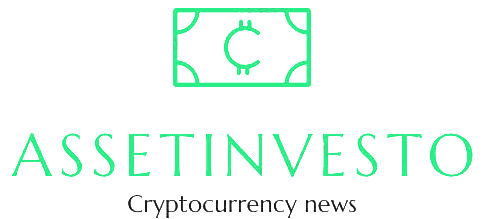Unleashing the Power of Effective Communication: 5 Tips for Career Professionals

The foundation of all human relationships is communication. The substance binds groups of people together, fosters ties, and advances careers. Effective communication has become more critical than ever to succeed in our fast-paced, globally connected society. Whether you are a recent graduate, an experienced executive, or anywhere in between, developing your communication skills can help you advance professionally. Here are five excellent suggestions to help you use great communication to advance your career:
1. Pay attention with purpose and empathy
Effective communication starts with listening. However, it’s vital to attend to comprehend and reply. You show respect and esteem for the speaker by paying attention. You can practice attentive listening by paying close attention, keeping eye contact, and avoiding outside distractions. Try to comprehend the words uttered and the emotions and underlying needs behind them by practising empathic listening. This empathic approach stimulates collaboration, helps you build stronger relationships, and helps you respond more carefully.
2. Select Your Words Carefully
Words have a lot of influence. Every word we utter or write carries weight and has the power to alter attitudes, arouse feelings, and direct behaviour. It’s essential to choose your words when communicating carefully. Avoid excessive jargon or technical language, and be straightforward. Make sure your comments impact your audience by tailoring your message to them. Be genuine, truthful, and open in your conversation to build trust. Remember that the correct words may unite people and inspire and motivate them.
3. Be an expert in nonverbal communication
Despite the value of words, non-verbal cues frequently convey more than comments do. Body language, facial gestures, tone of voice, and even silence are all examples of non-verbal communication. Pay attention to these cues to make sure your nonverbal communication reflects the message you want to convey. Keep your body open, make eye contact, and use movements to emphasize your points. Develop a confident, accessible demeanour that invites interaction with you. Your spoken message gains depth and authenticity through nonverbal cues, which promotes understanding and connection.
4. Use active listening and clarity of feedback
Miscommunication can hinder your ability to advance professionally. To prevent misconceptions:
- Be as straightforward as possible when communicating.
- Use examples, be descriptive, and provide context to frame your arguments effectively.
- Ensure your message is understood by asking clarifying questions, and encourage others to ask for clarification as necessary.
- Accept criticism as a chance to sharpen and enhance your communication abilities.
- Ask for feedback frequently from coworkers, bosses, and subordinates to expand your perspective and improve your communication.
5. Be Flexible in Your Communication Styles
Success requires adjusting to various communication styles in a varied and multicultural company. Every person has a different preferred method of communication and message interpretation. Spend some time learning about the preferred communication methods used by your clients, stakeholders, and colleagues. While some people value assertive, direct communication, others prefer a more indirect, collaborative style. Adjust your communication style to account for these distinctions to promote understanding and develop closer bonds.
The Consequences of Good Communication
Effective communication has effects that go well beyond the level of the individual. Career professionals who have mastered communication have a cascading impact that benefits their teams, businesses, and industries. Here are a few instances of the numerous advantages of good communication:
- Stronger Team Dynamics: Collaboration, trust, and respect are fostered by effective communication within teams. Team members may exchange ideas, offer criticism, and cooperate to achieve shared objectives when there are open and transparent lines of communication. Individuals are free to offer their distinctive viewpoints, resulting in more creative ideas and production.
- Improved Leadership Skills: Effective communication is critical to good leadership. Clear and compassionate leaders motivate workers, foster loyalty, and boost productivity. Leaders may inspire their people to accomplish excellent outcomes by actively listening, giving constructive criticism, and outlining a compelling vision.
- More satisfied clients: In client-facing positions, successful relationships with customers or clients depend on excellent communication. Professionals may completely comprehend client needs by actively listening, and confidence and trust in the supplied services or goods are fostered through clear and straightforward communication. Professionals can constantly meet and exceed their client’s expectations by creating effective contact channels. This increases client satisfaction and loyalty.
- Conflict Resolution and Problem-Solving: Successful communication is essential to resolving disputes and overcoming obstacles. Conflicts can be resolved positively when people talk calmly, listen intently, and respectfully voice their opinions. Professionals may uncover common ground, pinpoint solutions, and spark change by encouraging open discussion and cooperation.
- Industry Advancement: Effective communication can spark Progression and innovation across the board. Professionals can share knowledge and insights, advocate for change, and propose ground-breaking ideas by communicating clearly and persuasively. Good communication also makes it easier to share industry knowledge and best practices, promoting development across all industries.
Involving Oneself in the Process of Effective Communication
The route to being a great communicator calls for ongoing learning, practice, and self-reflection. You can start on this transformational path as a career professional by making the following investments:
- Continuous Learning: Stay current on the newest communication methods and trends. Use professional development opportunities like workshops, seminars, or online courses to improve your communication abilities.
- Opinion and Self-Assessment: To learn more about your communication skills and areas for development, ask trusted coworkers, mentors, or supervisors for their opinion. Evaluate your communication style and be willing to adapt as necessary.
- Active Observation: Study the techniques of effective communicators in your field. Please pay attention to how they interact with others, leave an impression, and modify their communication style to fit various circumstances.
- Practice Empathy: Actively consider other people’s feelings, views, and needs when communicating to develop empathy. Even in difficult situations, this empathic approach forges connections and encourages understanding.
- Reflect and develop: Consistently evaluate your communication experiences, and pinpoint areas to strengthen and build your abilities. Celebrate your victories, take lessons from your failures, and see every contact as a chance to improve.
As you set out on this trip, remember that the connections you make and the words you use are essential for effective communication. It necessitates adaptation, emotional intelligence, and active listening. You will see how the transforming power of good communication develops as you move forward, advancing your career and having a beneficial influence on others around you.
Javier Niskanen is a crypto investor who is passionate about helping others achieve success. He has a background in computer science and has been involved in the crypto world since early 2017. Javier is excited to see how blockchain technology will change the world for the better.








